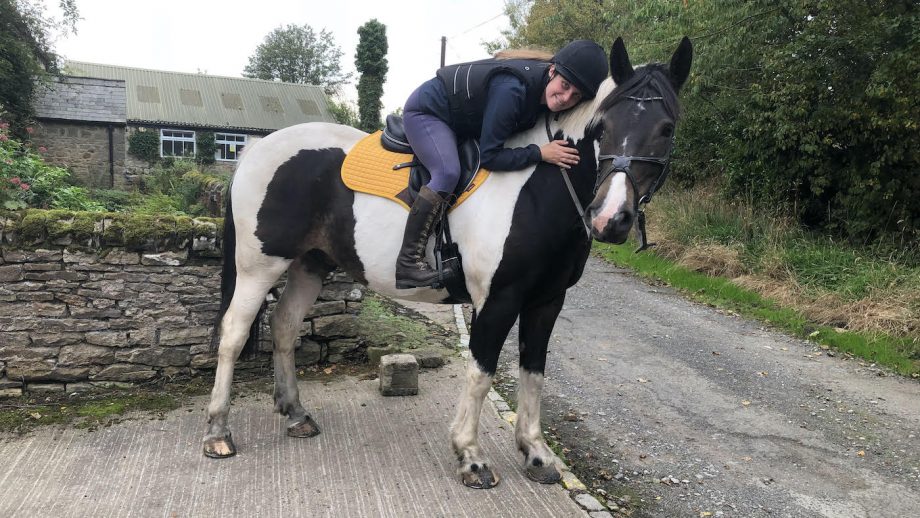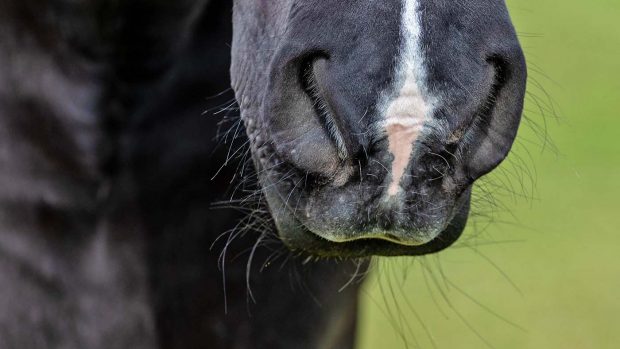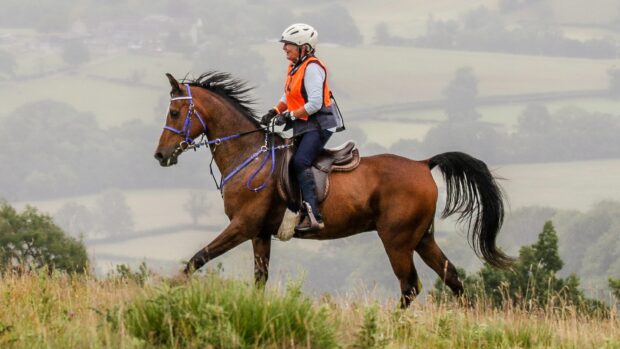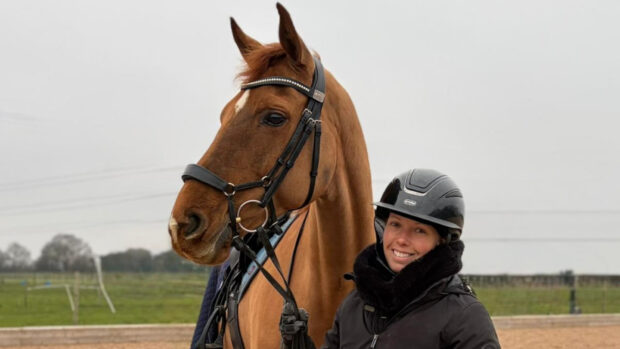THE discovery of a gene linked to equine kissing spines – and their severity – could help prevent the condition, it is thought.
Researchers in the US examined X-rays and genotypes of “stock-type” and warmblood horses. They found one variant, or allele, linked to an average increase in one kissing spines severity grade for each of the horse’s two copies of the allele.
Scientist and rider Christa Lafayette, CEO of Etalon Diagnostics in Menlo Park, California, told H&H the scientists in the company are also “horse people”, who felt pieces of the puzzle in equine research were being missed.
She added that the genetic tests her company uses are accredited and established, and that when she asked vets what conditions they would like to combat, which may be inherited, “top of the list was kissing spines”.
“So we decided to see if we could figure out the mystery,” she said, adding that they were surprised to find the correlation.
“What we want to be sure people understand is that, like many diseases, kissing spines has multiple components,” she said. “Horses can develop it in many ways and the correlation isn’t a causative. But if the horse develops it, it’s more likely to have a more severe grade.”
Ms Lafayette likened the situation to a predisposition to developing diabetes in humans, for example, or heart disease.
“If a horse has two copies of the fragile foal syndrome variant, it won’t have a good chance of surviving,” she said. “But it could have two copies of this one for kissing spines and be fine its whole life. But we know now that variant is associated with increasing severity if it does develop it; if the horse is negative and develops kissing spines, it’s likely to be mild.”
Further work is proposed, on other horse breeds and causative variants, but Ms Lafayette hopes what has been discovered so far will help; in avoiding breeding two horses with the gene, for example, but also in managing horses who have two copies.
“If I know an animal has a high risk of high-grade kissing spines, I’m going to be more careful with it,” she said. “I’ll be careful about building up the back, and be more proactive, before it becomes a problem – if you get off the couch and exercise, you’re less likely to get diabetes.”
Jenny Adamson, an equine physio and rehab specialist with particular interest in kissing spine rehab, told H&H she has long been trying to alert owners to related issues before they become problematic.
“If you can prevent it in the first place, genes or not, that’s so much better,” she said. “I’ve been through surgery with my own and clients’ horses and it’s not very pleasant, and it’s a long, difficult process afterwards.”
Ms Adamson said for horses whose spinal processes are naturally close, it does not take much for them to impinge, and issues arise.
“But all horses are at risk of kissing spines,” she said, adding that a more old-fashioned way of backing horses, with plenty of breaks and full work at about six years old, may be more beneficial to backing at three and going straight into full work. She also sees less lungeing and long-reining now than in the past, and possibly less of the building and strengthening work, which might make kissing spines more likely to develop.
“The gene is interesting, and if we know there is one, we know we maybe shouldn’t be breeding those horses,” she said, agreeing with Ms Lafayette that extra care should be taken with those horses who have the variant.
“If you get the fundamental stuff right, you can prevent kissing spines,” she said.
You might also be interested in:

‘They’re trying to tell us – we need to listen’: rider of ‘naughty’ horse diagnosed with kissing spine wants to help others notice signs earlier

How walk work over poles benefits equine rehab and strength

Subscribe to Horse & Hound magazine today – and enjoy unlimited website access all year round

Kissing spines in horses: what all owners need to know
Horse & Hound magazine, out every Thursday, is packed with all the latest news and reports, as well as interviews, specials, nostalgia, vet and training advice. Find how you can enjoy the magazine delivered to your door every week, plus options to upgrade your subscription to access our online service that brings you breaking news and reports as well as other benefits.




